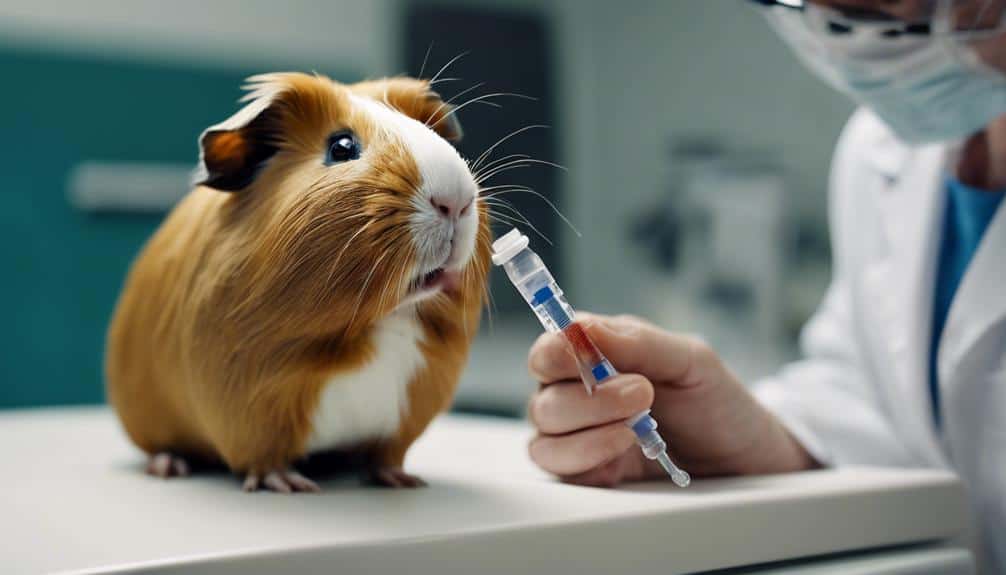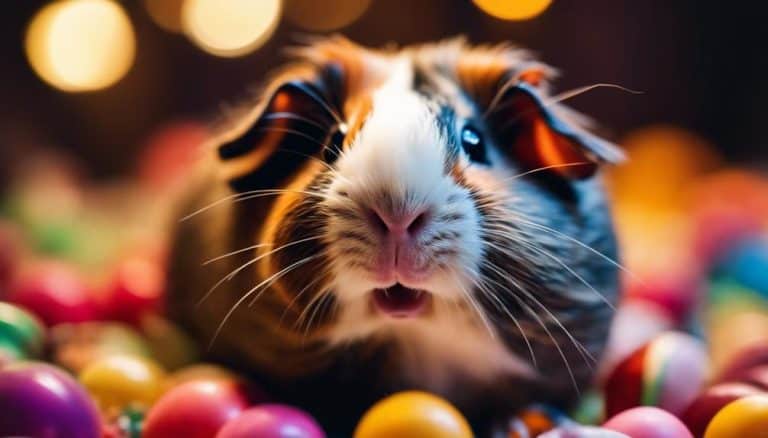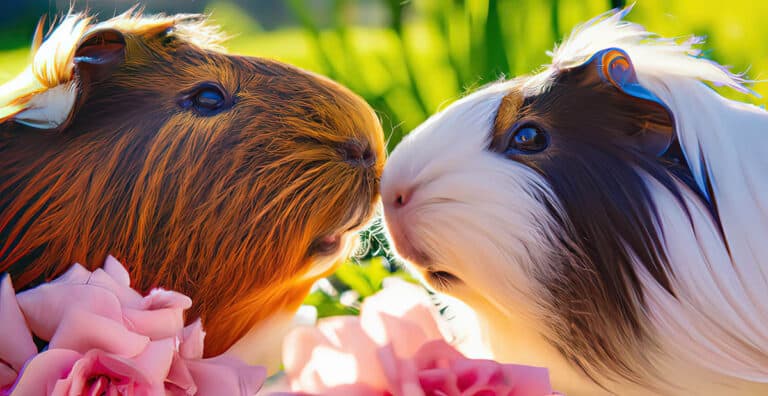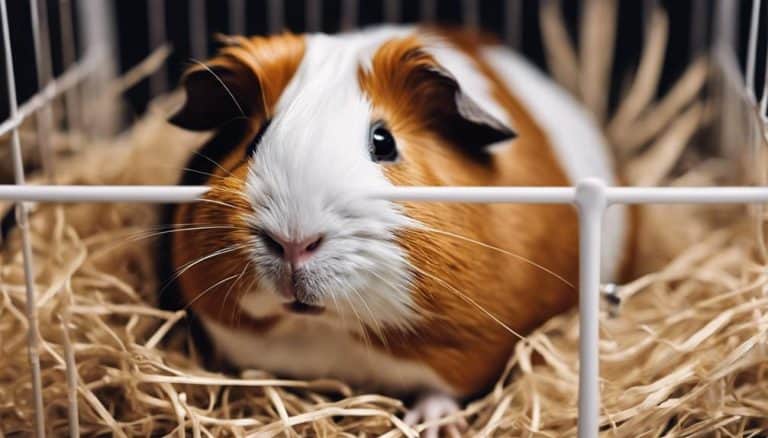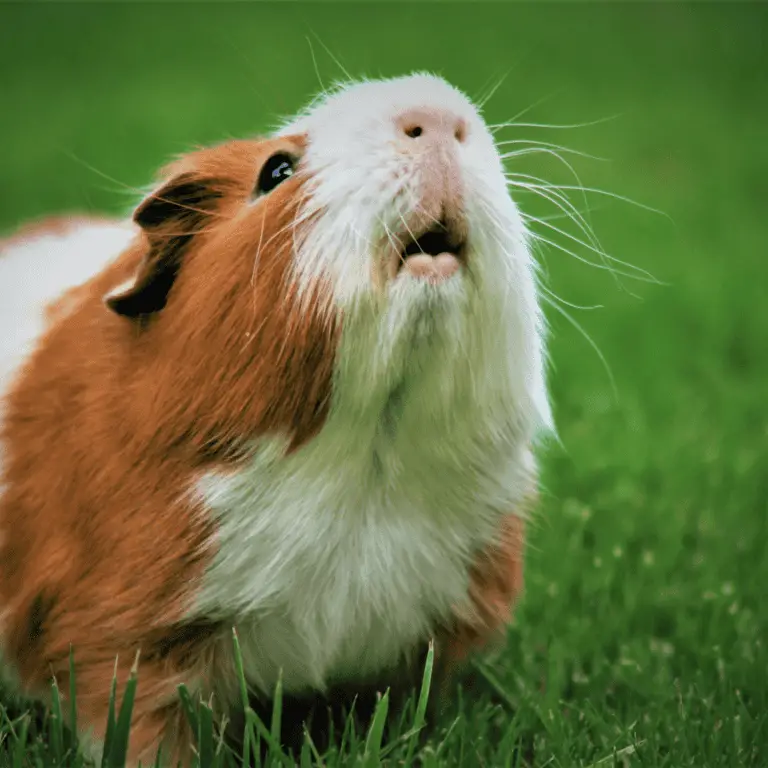How to Determine If Guinea Pigs Need Shots
As guinea pig owners, we might not be aware that determining whether our furry friends need shots can be a complex decision. While vaccinations are not typically required for guinea pigs, there are specific instances where they may be necessary to protect against certain diseases.
Understanding the signs of potential illnesses and consulting with a knowledgeable veterinarian can help us make informed choices about our pets’ health.
Let’s explore the factors that play a role in deciding if guinea pigs need vaccinations to guarantee their well-being.
Signs of Vaccine-Preventable Diseases
When observing guinea pigs for signs of vaccine-preventable diseases, pay close attention to symptoms such as respiratory issues, diarrhea, or skin lesions. These indicators could point towards common health issues that vaccinations are available for, such as Bordetella bronchiseptica, Pasteurella multocida, or Clostridium piliforme.
It’s important to monitor your guinea pig’s overall health regularly and be on the lookout for any unusual behavior, weight loss, or decreased activity levels. These signs might be early warnings of illnesses that could be prevented through vaccinations.
To ensure the well-being of your guinea pig, consult with a veterinarian to discuss the prevalence of specific diseases in your region and determine the necessity of vaccinations based on your pet’s risk factors. Keeping detailed records of your guinea pig’s health history and vaccination status will help you track any potential exposure to vaccine-preventable diseases efficiently.
Importance of Preventive Vaccinations
Given the isolated lifestyle and low exposure to common infectious diseases of guinea pigs, preventive vaccinations are typically not deemed necessary for their overall health. Guinea pigs, as common pets, have minimal contact with pathogens that would warrant the need for preventive vaccinations. While some pets, like dogs, may require routine shots, guinea pigs’ limited risk of exposure to infectious diseases sets them apart.
However, it’s important to keep in mind regional legislation regarding vaccinations for pets. Consulting with a veterinarian can help determine if there are any specific shots mandated by local laws.
Even without the need for preventive vaccinations, regular veterinary care remains essential for monitoring the overall health and well-being of guinea pigs. So, while preventive vaccinations aren’t typically recommended for these small pets, staying informed about regional regulations and providing proper veterinary care are vital practices for responsible guinea pig ownership.
Vaccination Schedule for Guinea Pigs
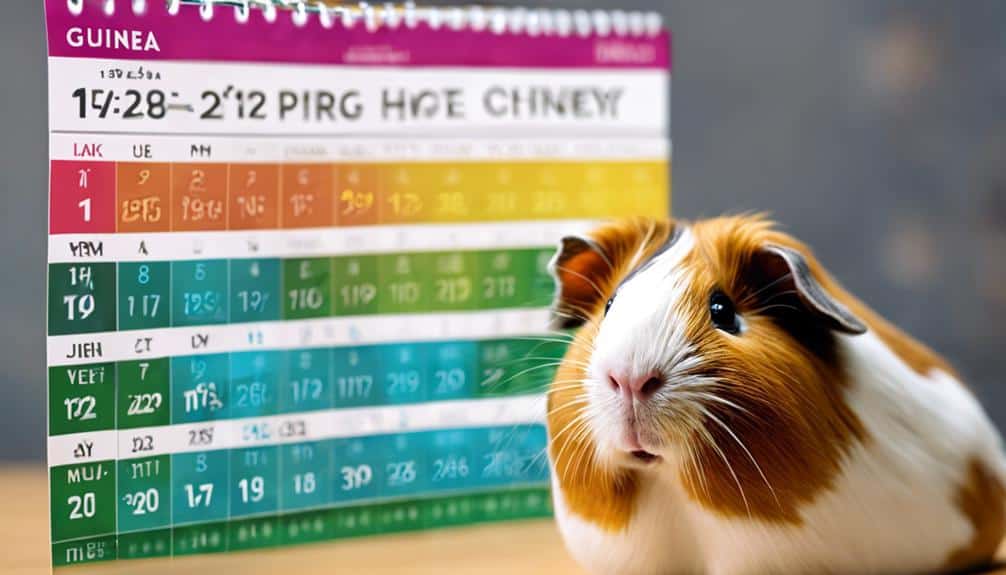
To guarantee high-quality health care for guinea pigs, understanding the necessity of vaccinations is essential in maintaining their well-being. When it comes to vaccinations for guinea pigs, there are a few key points to keep in mind:
- Consult a Veterinarian: While guinea pigs don’t typically require vaccinations, it’s essential to consult with a veterinarian to stay informed about regional vaccination legislation.
- Low Risk of Diseases: Due to their isolated lifestyle and low exposure to infectious diseases, guinea pigs aren’t at high risk for common illnesses that require vaccinations.
- Not a Standard Practice: Vaccinations aren’t a standard practice for guinea pigs, unlike outdoor dogs or other pets that may need regular immunizations.
- Regular Veterinary Care: Even though vaccinations may not be necessary, regular veterinary check-ups are crucial for monitoring the overall health of guinea pigs.
Risks and Benefits of Vaccinations
Moving on the Risks and Benefits of Vaccinations for guinea pigs, it is important to take into account their unique health needs and the impact of immunization decisions on their overall well-being. Vaccinations for guinea pigs are generally unnecessary due to their isolated lifestyle and low exposure to infectious diseases. These animals are not at high risk for common diseases that vaccinations protect against, making the need for vaccinations minimal. Consulting with a veterinarian can confirm the low necessity of vaccinations for guinea pigs based on individual circumstances. According to the University of Pennsylvania School of Veterinary Medicine, routine vaccinations for guinea pigs are not recommended. While vaccinations may be unnecessary, regular veterinary care and health monitoring are essential for maintaining the well-being of guinea pigs.
| Category | Risk | Benefit |
|---|---|---|
| Vaccinations | Low | Unnecessary |
| Health Monitoring | Essential | – |
| Veterinary Care | – | Essential |
Consulting a Veterinarian for Vaccination Advice
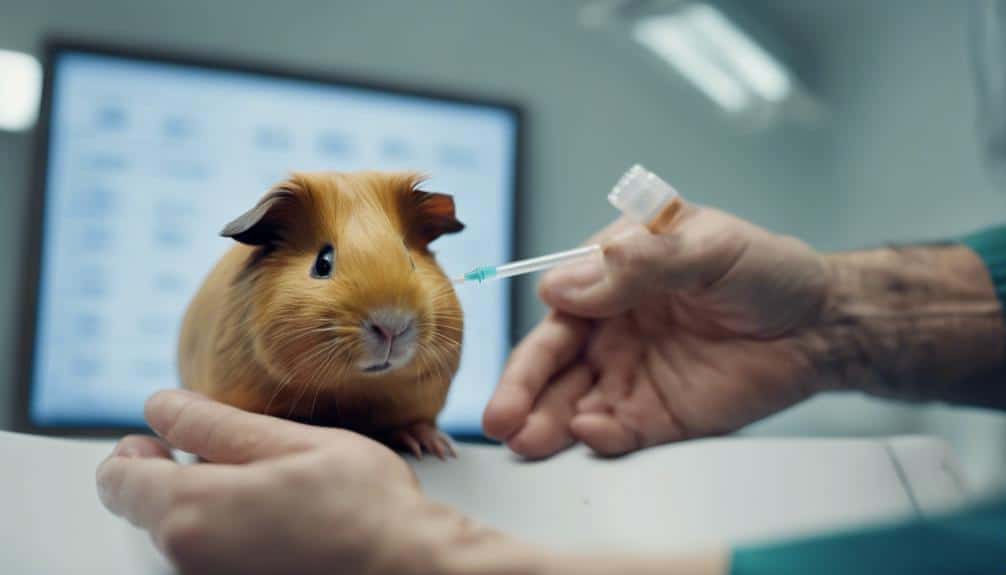
When seeking advice on guinea pig vaccinations, consulting with a veterinarian experienced in exotic pet care is essential for tailored recommendations. Exotic veterinarians possess the knowledge and expertise to provide personalized guidance on the specific vaccination needs of guinea pigs, taking into account factors such as regional requirements and individual health considerations.
Here are some key reasons why consulting a veterinarian for vaccination advice is important:
- Personalized Recommendations: Veterinarians experienced in exotic pet care can offer personalized vaccination recommendations based on the unique health needs of individual guinea pigs.
- Regional Requirements: These professionals are well-versed in regional vaccination requirements, ensuring that your guinea pig receives the necessary shots based on where you live.
- Risk Assessment: Veterinarians can assess the risks and benefits of vaccinations for guinea pigs, considering factors such as lifestyle and health status.
- Professional Guidance: Seeking advice from a veterinarian ensures that you receive accurate and reliable information regarding vaccination recommendations for your guinea pigs.
Conclusion
To sum up, keeping an eye out for potential signs of illness in guinea pigs is essential for their well-being. Like a vigilant guardian watching over their flock, we must be attentive and proactive in ensuring their health.
Regular check-ups and consultations with a veterinarian can provide the necessary guidance on preventive care, including vaccinations. Let’s be the protective shield that guards our furry friends against any potential health risks.

